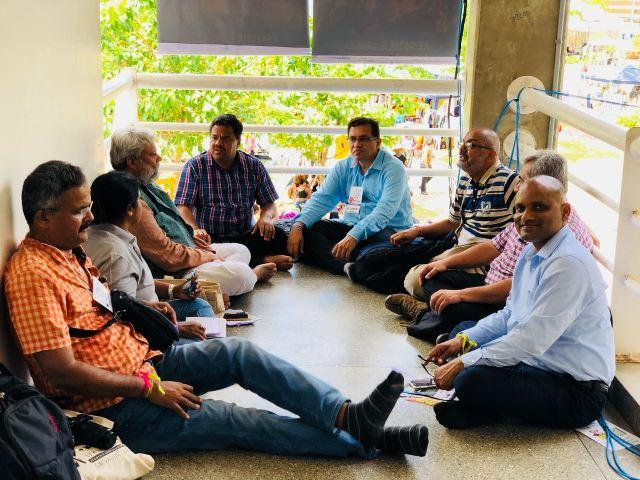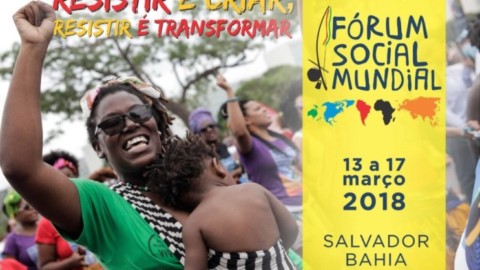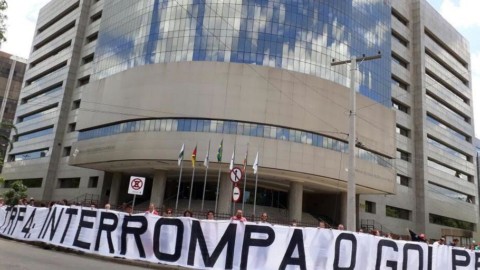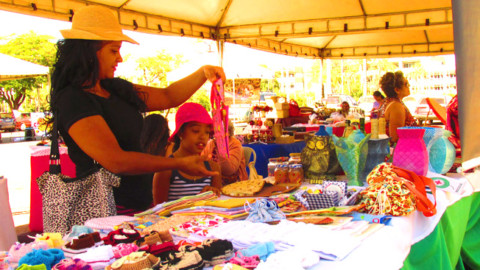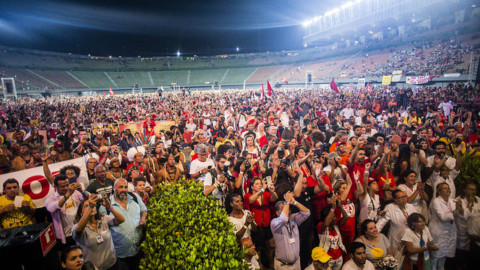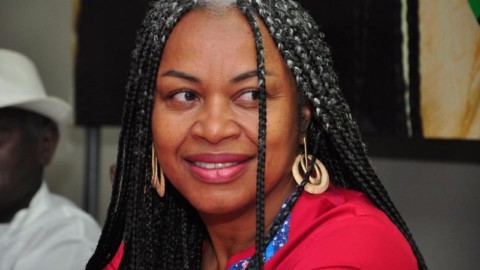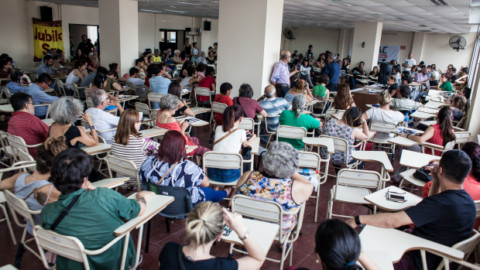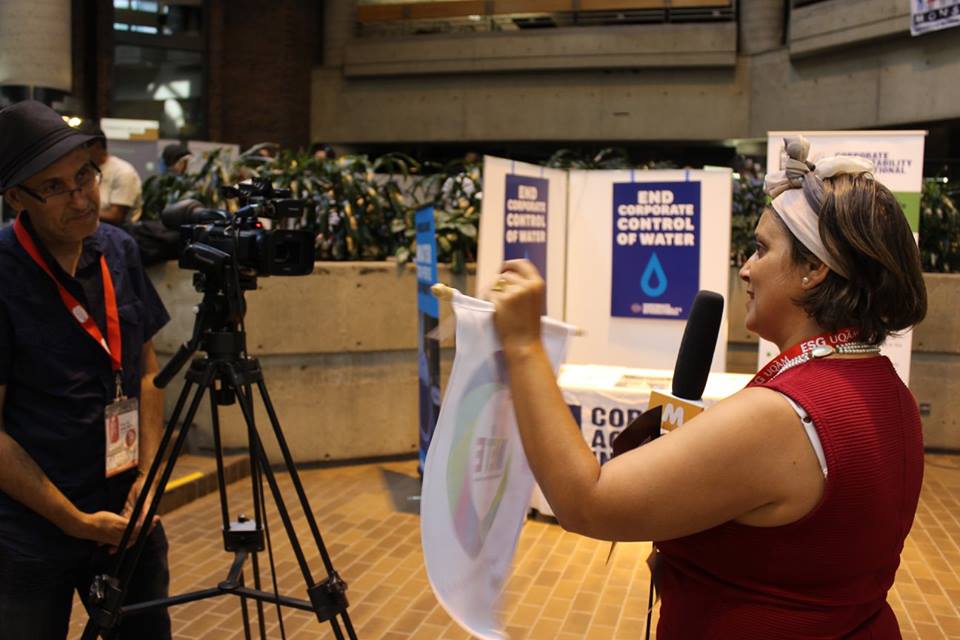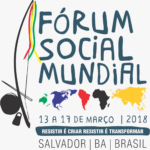The Path we are travelling is Unsustainable: The World. Needs an Alternate Path
(A Report on WSF and WWF in Brazil)
A nine member team led by Dr Rajendra Sing, known as Waterman of India went to
Brazil to attend the World Social Forum held during March 13th to 17th at
Salvador and World Water Forum during March 18th to 23rd at Brasilia. The other
members of the team includes Mr.Kishor Dharia, Mr.Sudhir Rathod, Dr.Snehal
Donde, Mr.Pramod Deshmukh, Mr.Aniket Lohiya, Mr Deepak Parvatiyar,
Mr.Moulik Sisodia, Mr.Sudarsan Das, Mr Anil Patil, Mr Narendra Chug, Ramesh
Sharma etc. World Social Forum (WSF) and World Water Forum (WWF) are
considered to be the biggest civil society events in the world in the recent past.
World Social Forum at Salvador
The collapse of bi-polar world order after the collapse of communist regime in East
Europe and emergence of uni-polar world order created a space to challenge the
world order, specially the globalized market hegemony. WSF emerged out of that
space in last part of the 20th century with a motto, “Another World is Possible”.
The WSF prefers to define itself as an open space-plural,diverse,non-partisan-that
stimulates the decentralized reflections, proposal building, experience sharing and
alliances among movements and organizations engaged in concrete actions towards
more solidarity, democratic and fair world –a permanent space and process to
build alternative to the neo-liberal world economic order’. The process got started
in 2001 from Brazil at Port Alegre and since then WSF has become the largest
event of civil society organizations of the world in uniting like minded people for an
alternate world. In 2004 WSF was organized in Mumbai, India in which the
President of South Africa, Nelson Mandela had attended and said,
“We owe a huge debt to our future generation in the form of a better world…that world is definitely possible. Through efforts like the one you are engaged in now, this world will be a
reality”. This statement of Nelson Mandela made the world community sit and take note of WSF.
After that many WSF sessions were held in different parts of the world
and this time Brazil hosted WSF for 8th time at Salvador in which the Indian
Delegation led by Dr Rajendra Singh made an effective presence.
The event was organized in the Bahia Central University, Salvador and was attended by more
than 16000 people from various parts of the globe. There were many sessions during the WSF and Indian delegation took part in few of them, most prominent among them was the session on , “Networking among movements for alternate ideas and thinking” which was organized by University of sustainability of China.
Dr Rajendra Singh, Mr Sudarsan Das, Mr Aniket Lohiya, Mr Narendra Chug etc
participated and emphasized on connecting movements around rivers in different
parts of India with rest part of the Globe. Mr Rajendra Singh spoke about the
community’s search and activities around rejuvenating the rivers of Rajasthan and
stressed upon the need for the world to recognize it for greater interest of the earth
in protecting the environment in general and water and rivers in particular. He
emphasized on the need for creating a world forum called World River Forum. In
the said session other representatives from Japan, Nepal, France, Brazil etc also
spoke apart from China, the hosting country. Mr Sudarsan Das, Convenor,
Mahanadi Bachao Andolan while emphasising the need of connecting movements
on environments around the world spoke about the people’s struggle in Odisha
,India to protect river Mahanadi from the clutches of industrial houses.
The WSF at Bahia Salvador had many seminars, workshops, plenary sessions,
cultural activities and conferences in the University campus as well as around the
city. The academic community and the indigenous community across the globe
joined in the 5 days programmes and had serious deliberations about alternative
ideas and thinking to the present order and happenings of the world.
The dreams of humanity today are confronted with fundamentalism of wars and
xenophobia and systems of domination with the new ways of striking liberties and
democracies. The WSF at Salvador networked with local movements across the
world called upon the world community to forge challenges to this systems. Many
parliamentarians and heads of the countries of Latin America and South Africa
also took part in the WSF besides civil society members.
The WSF 2018 made some declarations such as 1) On democracy in danger in
Brasil- in which the attack on democracy in the region, with even coups in Latin
America, in Honduras, Paraguay and recently also in Brazil was challenged 2) On
the Mercosur-EU FTA- where the agreement to explore the natural resources
between the EU and Mercusur which will severely affect the small and marginal
farmers and the ecosystems and bio-diversity around the Amazon area was
opposed 3) On access to water as a public good- where the commoditization of
water was rejected and the demand for equitable access to water as a free good was
reiterated. 4) Against war and militarization-where concerned over wasting
immense resources in the recent global tide of militarization and raising military
budget of countries world wide was challenged.
The Indian delegates who took part in the WSF 2018 took a resolution on 17th
March, on the concluding day of the WSF to set up a World River Forum to connect
WSF processes in addressing the crisis mounting on rivers across the globe for the
better understanding of rivers as well as protecting life, livelihood and entire eco-
systems including bio-diversity around thee rivers. The resolution appealed the
world community and civil society organizations, attending the WSF to join hands
in setting up the World River Forum as a platform for comprehensive dialogues in
considering river rights as integral part of human rights and forge unity among
community driven processes and community led movements around river and
related issues across the globe. The resolution stated that transboundary river
conflicts and forced migration related to water are posing great threat to human
society and peace and hence called upon the civil society involved in WSF process
to come forward in mitigating this crisis which is getting unmanageable due to the
factors like climate change among others.
World Water Forum 2018
Water for Sharing-with this punch line and the theme, the World Water Forum had
it’s 8th edition at Brasilia, the capital of Brazil from 18th to 23rd of March.
Considered to be the biggest event in the world related to water, the event was
really seen to believe. With huge participation of delegates from all the continents
of the world including country heads, international Governments, academia,
corporate houses, civil society, R&D institutions, parliamentarians and common
citizens, the 6 days event created another chapter in the history of WWF which was
organised by World Water Council.
The formation of World Water Council (WWC) was first proposed in 1992 at the
UN’s International Conference on Environment and Development in Dublin and at
the Rio de Janeiro Earth Summit. In continuation of this resolution, the World
Water Council was formed in 1996 with its Head Office in Marseille, France.
Over the past 20 years, the World Water Council has become a unique platform of
international hydro-diplomacy where the water community and policy decision makers from all the regions of the world come together to discuss solutions for
water security of the world.
The WWC holds the largest water event in the world every 3 years called the World
Water Forum (WWF) and the last one was hosted in Brasilia, Brazil in March this
year in which more than 120,000 people from 172 countries participated. The
inauguration of the forum this year was attended by 12 heads of state and 134
parliamentarians from 20 nations participated in the parliamentary conference in
the forum. The conference of judges was attended by 83 judges of Supreme Court
from 57 countries.
56 Ministers and 14 Deputy Ministers were present in the ministerial conference
and international bodies such as UN and its agencies, European Union, World
Bank, OECD, International Development Bank and many others participated in
high level discussions on water.
The Indian government participation in the Council and at the Forum has been
negligible with only 3% of the members of the World Water Council are from India.
There were 95 sessions besides many side events numbering more than 200 on 32
topics and 9 broad themes on water, formed the proceedings of the 8th WWF
besides Citizen’s Village and Expo where hundreds of activities and exhibitions
found places. The major themes of WWF include 1. Climate (Water Security and
Climate Change) 2. People (Water, sanitation and health) 3. Development (Water
for sustainable production) 4. Urban (Integrated urban water and waste
management) 5. Ecosystems (Water quality, ecosystem livelihood and biodiversity)
6. Finance (Financing for water security) and other cross cutting themes include 7.
Sharing (Sustainability through stakeholders involvement) 8. Capacity (Education,
capacity building and technology exchange) and 9. Governance ( Water
Governance for 2030 development agenda). The key issues emerged out of the
sessions, side events, group meetings etc were nature based solutions, human
rights, participation, innovations, water security, green and grey infrastructures,
data, ICT and monitoring, investment, integration, partnerships, coordination etc
on which series of recommendations were made and a declaration on the basis of
the above was made on the concluding sessionof the 6 day’s event. The WWF was
concluded with concrete action plans for the 9th WWF at Senegal, SA in 2021.
The Indian delegates made their effective presence in the WWSF in the form of
networking, organizing side event on, “River, water and migration”, interacting with
delegates from different countries including field visit to places of importance
related to water conservation and management. The side event organized by Indian delegates led by Dr Rajendra Singh with support from World Water Council was
attended by many delegates from different countries including India. Chaired by Dr
Singh and attended by Honorary President, Governors of WWC from Hungeri, US,
India etc the side event thrust upon the need of rejuvenating the river ecosystems
and processes & movements around them and to meet up the challenges of water
crisis and related issues around it. Dr Rajendra Singh stressed upon setting up of
a World River Forum to have dialogues, deliberations and formulating action points
in protecting the ecosystems around the rivers across the globe and forge unity and
net works among the movements, activities and processes in different countries in
this regard. The Indian delegates who spoke on the occasion include Mr Ramesh
Sharma, Narendra Chug, MrSudarsan Das etc.
The events were organized in huge scale with elaborate arrangements of logistic,
dazzling podiums, technology equipped conference halls, sophisticated application
of ICT and of course beautifully arranged refreshments, thanks to initiative of WWC
and support of Brazilian Govt in which the corporate houses dealing with water
played a major role.
Alternate World Water Forum
As an interesting development, Brasila witnessed an alternate World Water Forum
events parallel to the World Water Forum in between 14th to 22nd March which
challenged the official WWF in terms of it’s too much corporate driven phenomena.
The alternate forum was orgnised at City Park Stadium, Brasilia with participation
of thousands of delegates across major continents of the globe where the motto of
WWF in terms of commercialization of water was severely challenged. The
University of Brasilia also took active part in organizing seminars, symposiums,
thematic discussions in it’s campus for the alternate water forum. The alternate
forum opposed the self styled World Water Forum, orgnanised by big corporations
that aim to boost water modification and rejected corporate control over the
natural heritage that is water. Access to water is a fundamental right, AWWF said
and called upon the civil societies, citizens, environmental and humanitarian
organizations, movements etc of the globe to oppose any move of market ownership
over such fundamental human rights such as water. The AWWF had series of
thematic discussions, including plenary sessions where it was urged upon to forge
unified struggle against the big corporations’ attempt to turn water to a commodity,
privatising water reservoirs and water sources, trying to turn the rights over water
into an unreachable resource to many populations that, make the humanity suffer
from social exclusion, poverty and are involved in all kinds of wars. The organizers
of AWWF calls the WFF as illegitimate as it is a business fair to promote the market
to transnational companies focusing on water and sanitation sectors. The AWWF
declared, “Water is a right and not a commodity” and “it is a public good that must
be shared with all humanity and living beings”.
Two delegates from India such as Mr Moulik Sisodia and Mr Sudarsan Das took
part in this AWWF. In one of the sessions on connecting people’s movements
around water of the globe, Mr Sudarsan Das took part and narrated how Mahandi,
a life line of the people of 30 millions of the people of the state of Odisha, India is
going to be under the clutches of corporate houses, denying the rights of the people
over the water of the river as multiple river valley projects being funded by them,
diverting the flow of the river for industrial purposes.
The cultural programmes at AWWF was worth seeing in which the fight of local
indigenous people in protecting rivers and water bodies against the clutches of
corporate houses like Nestle, Coca Cola etc was very effectively depicted.
Field Visits
The Indian delegates during their stay at Brazil visited many places like Brasilia’s
water bodies, ecological heritages, Salvador’s monuments, Rio’s natural heritage
and monuments etc. The visit to these places were very much enriching
experiences.
See docments and photos in the PDF report
Report on the Vist to Bazil.
